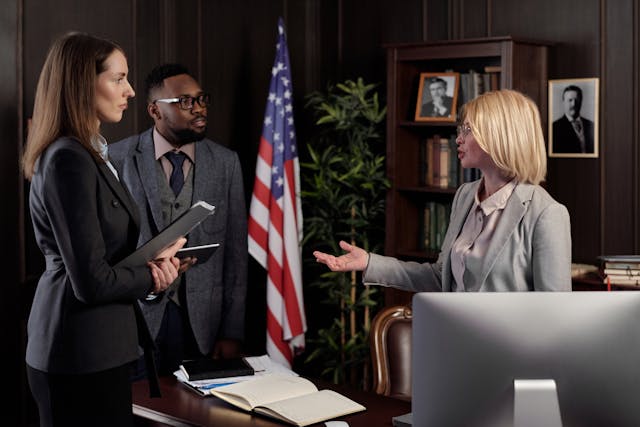Exploring the Ethical Dilemmas Faced by Lawyers
Lawyers play a pivotal role in upholding justice and advocating for the rights of their clients. However, in the pursuit of these noble objectives, they often encounter complex ethical dilemmas that challenge their professional integrity and moral compass. In this article, we delve into the ethical quandaries faced by lawyers, examining the principles, rules, and considerations that guide their decision-making in the practice of law.
Confidentiality and Attorney-Client Privilege
One of the fundamental ethical duties of lawyers is to maintain confidentiality and uphold attorney-client privilege. This obligation requires lawyers to safeguard the confidences and secrets of their clients, even at the risk of personal or professional consequences. However, lawyers may face dilemmas when balancing their duty of confidentiality with obligations to disclose information in the interest of justice, such as preventing imminent harm or complying with legal requirements.
Conflict of Interests
Lawyers are obligated to avoid conflicts of interest that may compromise their loyalty to their clients or the integrity of the legal profession. However, navigating conflicts of interest can be challenging, especially in complex cases involving various parties or competing interests. Lawyers must carefully assess potential conflicts and take appropriate steps to mitigate or resolve them, such as obtaining informed consent from affected clients or declining representation altogether.

Zealous Advocacy vs. Professional Integrity
Lawyers are duty-bound to zealously advocate for their client’s interests within the bounds of the law. However, this duty must be balanced with the ethical imperative to uphold the administration of justice and maintain professional integrity. Lawyers may face ethical dilemmas when their clients’ interests conflict with broader ethical, moral, or societal considerations. In such cases, lawyers must navigate the tension between zealous advocacy and ethical constraints, ensuring that their actions uphold the principles of fairness, honesty, and respect for the rule of law.
Candor and Truthfulness
Honesty and candor are essential ethical principles in the practice of law. Lawyers must be truthful in their communications with clients, courts, and opposing parties, and refrain from making false or misleading statements. However, lawyers may face dilemmas when clients expect them to engage in deceptive or unethical conduct to advance their interests. In such situations, lawyers must uphold their duty of candor while finding ethical ways to advocate for their client’s interests within the bounds of the law.

Professional Independence and Integrity
Lawyers must maintain their professional independence and integrity, free from undue influence or pressure that may compromise their capability to represent their clients effectively. However, lawyers may face ethical dilemmas when confronted with demands from powerful clients, employers, or other stakeholders that conflict with their ethical duties and obligations. In such cases, lawyers must demonstrate courage, resilience, and ethical fortitude to uphold their professional independence and integrity, even in the face of adversity.
Conclusion
The ethical dilemmas faced by lawyers are complex and multifaceted, requiring careful consideration, ethical reasoning, and adherence to professional standards and obligations. By navigating these dilemmas with integrity, honesty, and a commitment to justice, lawyers can uphold the principles of the legal profession and advance the cause of justice for their clients and society as a whole.…
How to Make an Appeal in Court: The Essential Guide
If you’ve been convicted of a crime and believe that you have been wrongfully accused or that the sentence given to you is too harsh, you may want to consider appealing the decision. This can be a difficult process, but with the help of an experienced lawyer, it can be done. This guide will walk you through the essential steps involved in making an appeal in court.
Keep in mind that every case is different, so please consult with a qualified legal professional before making any decisions.
State Your Case
People accused of something will be allowed to hear their case in court. Try to explain the whole situation and not just parts of it to make it more relatable to the appellate court. However, if you’ve been convicted, you will need to state your case to the appellate court. This is why it’s crucial to have a lawyer that knows how to present your side of the story in the most favorable light possible.
File an Appeal
The first step in appealing a conviction is to file an appeal with the court. This must be done within a specific timeframe, so acting quickly is essential. Your lawyer will be able to file the necessary paperwork and get the process started. The process is not usually very complicated, but it’s important to have someone on your side who knows the ins and outs.
Wait for a Hearing
After you’ve filed an appeal, the next step is to wait for a hearing. This can take some time, so be patient. In the meantime, your lawyer will continue working on your case and gathering evidence. It’s important to be prepared for the hearing to make the best possible argument.
At the Hearing
The hearing is where you will present your case to the appellate court. This is your chance to tell your side of the story and convince the court to overturn the conviction. Your lawyer will help you prepare for this, so make sure to listen to their advice.
After the Hearing
Once the hearing is over, the appellate court will make a decision. If they decide to overturn the conviction, you will be free to go. If they uphold the conviction, you may still have options available to you. Consult with your lawyer to see what your next steps should be.
Appeal to a Higher Court
 If you got rejected in your first attempt to appeal, you might still have the option to appeal to a higher court. This is usually a last resort, but it’s worth considering if you believe that you were wrongfully convicted. Again, this is a complex process, so it’s necessary to have an experienced lawyer by your side. Appealing to court can be a complicated process, but with the help of an experienced lawyer, it can be done. So, don’t worry too much and hire a good lawyer to represent your case.…
If you got rejected in your first attempt to appeal, you might still have the option to appeal to a higher court. This is usually a last resort, but it’s worth considering if you believe that you were wrongfully convicted. Again, this is a complex process, so it’s necessary to have an experienced lawyer by your side. Appealing to court can be a complicated process, but with the help of an experienced lawyer, it can be done. So, don’t worry too much and hire a good lawyer to represent your case.…





